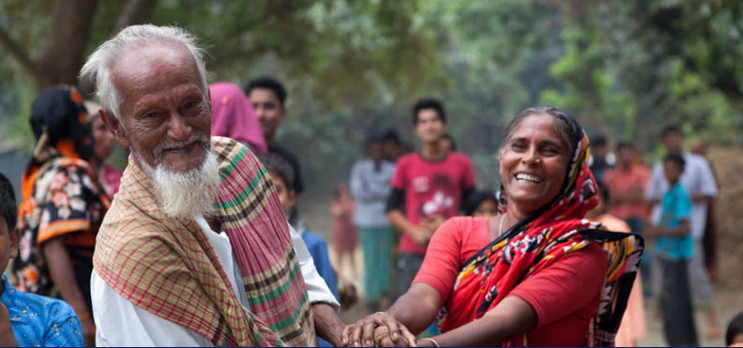As global life expectancy rises, the sexual health needs of older adults are gaining attention.
While the United Nations Population Fund (UNFPA) defines sexual health as a state of physical, mental, and social well-being in relation to sexuality, this definition has largely excluded older populations.
“There’s an assumption that older adults aren’t sexual and therefore don’t need information,” Professor Sharron Hinchliff from the University of Sheffield explains.
Yet, many older individuals remain sexually active or wish to be, despite facing challenges such as menopause, erectile dysfunction, or the effects of chronic illnesses.
A 2019 UK study revealed that one in four men and one in six women aged 55 to 74 years had health conditions or took medications that affected their sex lives.
These issues are often dismissed by healthcare providers, with some patients being told that “painful sex is just due to age” without being offered solutions, Hinchliff notes.
Breaking the Silence
To address these gaps, the Age of Love series, launched by Hinchliff in 2019, creates spaces where older adults can discuss sexual health openly.
Events feature discussions about topics such as intimacy after surgery, the impact of medication on libido, and safe sexual practices.
“At first, everyone was a little nervous,” psychologist and co-organiser Audrey Tang says, describing one session in Northampton, England.
“But almost immediately, people started opening up – and having fun.”
The initiative aims to fill the information void that older adults often face.
The neglect of older adults' sexual health extends beyond social stigma. Healthcare systems frequently overlook this demographic.
"Older adults tell us their concerns are ignored by doctors due to their age,” Hinchliff adds.
To combat this, her team developed the UK’s first Sexual Rights Charter for Older Adults, which advocates for dignity, respect, and non-discrimination in healthcare policies regarding sexuality.
The Broader Picture: Addressing Inequality
Globally, sexual health inequalities persist across all age groups, as highlighted in the UNFPA State of the World report.
Marginalised communities face the most significant barriers to healthcare access. For older adults, these disparities are compounded by the lack of representation in data and policies.
“Nearly half of women globally still cannot make decisions about their own bodies,” The report notes.
It emphasises that efforts have often prioritized the easiest-to-reach populations, leaving the most marginalized groups, such as women of African descent and Indigenous communities, without adequate care.
Denying the sexual rights of older adults manifests in many ways, from prohibiting intimate relationships in care homes to excluding them from public health campaigns addressing sexually transmitted infections (STIs).
Research by Age UK highlights alarming disparities: between 2014 and 2018, STI diagnoses dropped by over 7 per cent among men aged 20 to 24 years but rose by 23 per cent in those aged 65 and older.
“This reflects systemic neglect in sexual health services for older people,” Hinchliff says.
Many older adults delay or avoid seeking help for sexual issues due to stigma and societal attitudes that dismiss their sexuality.
These challenges are compounded for individuals from marginalised groups, including LGBTQ+ seniors, those from conservative backgrounds, or low-income households.
Breaking Barriers with the Sexual Rights Charter
To address these disparities, Hinchliff and her colleagues at the University of Sheffield developed the Sexual Rights Charter for Older Adults.
The Charter advocates for healthcare providers and policymakers to recognize and meet the sexual health needs of aging populations.
“The idea for the Charter was born out of frustration,” Hinchliff explains.
“Simple measures, such as asking patients about the impact of medications on their sex lives, can make a significant difference.”
This initiative also includes practical tools like the website AgeSexandYou.com, which offers straightforward information on sexual health for older adults.
Efforts to promote sexual health awareness have included community events such as the Age of Love café series.
These provide safe spaces for older adults to discuss sexual health topics and address the information gap.
In December 2023, a special event titled Breaking the Silence was dedicated to men’s mental and sexual well-being.
“Men want to talk about these things as well,” Prof. Hinchliff observes, “but they are often not given the opportunity or the right environment.”
Global Efforts
The World Health Organisation has embraced initiatives like Age-Friendly Sheffield, which strives to create supportive environments for older adults.
These efforts align with broader global goals to ensure aging populations are treated with dignity and respect, including in matters of sexual health.
As the world grapples with an aging population, addressing the sexual health and rights of older adults is critical. These initiatives challenge entrenched norms and create pathways for healthier, more inclusive societies.
The emerging focus on the sexual health of older adults highlights a critical need for inclusive healthcare systems.
“We must dismantle the persistent inequalities embedded in our health infrastructure, including the neglect of older populations,” Hinchliff argues.












